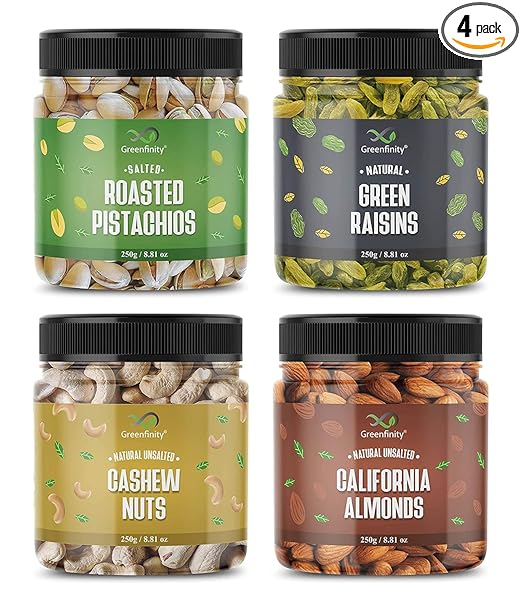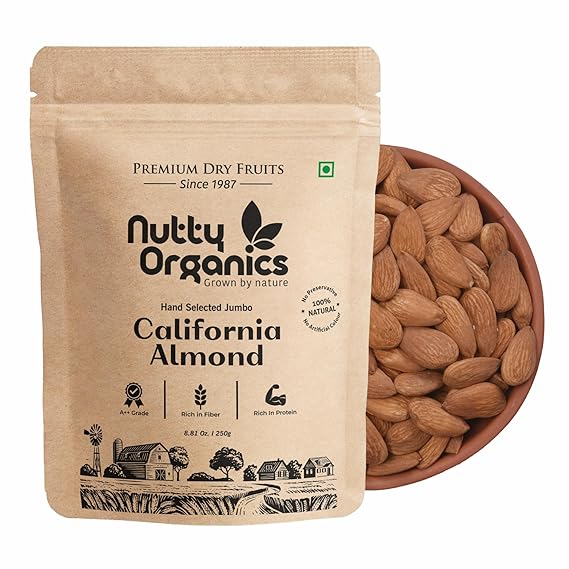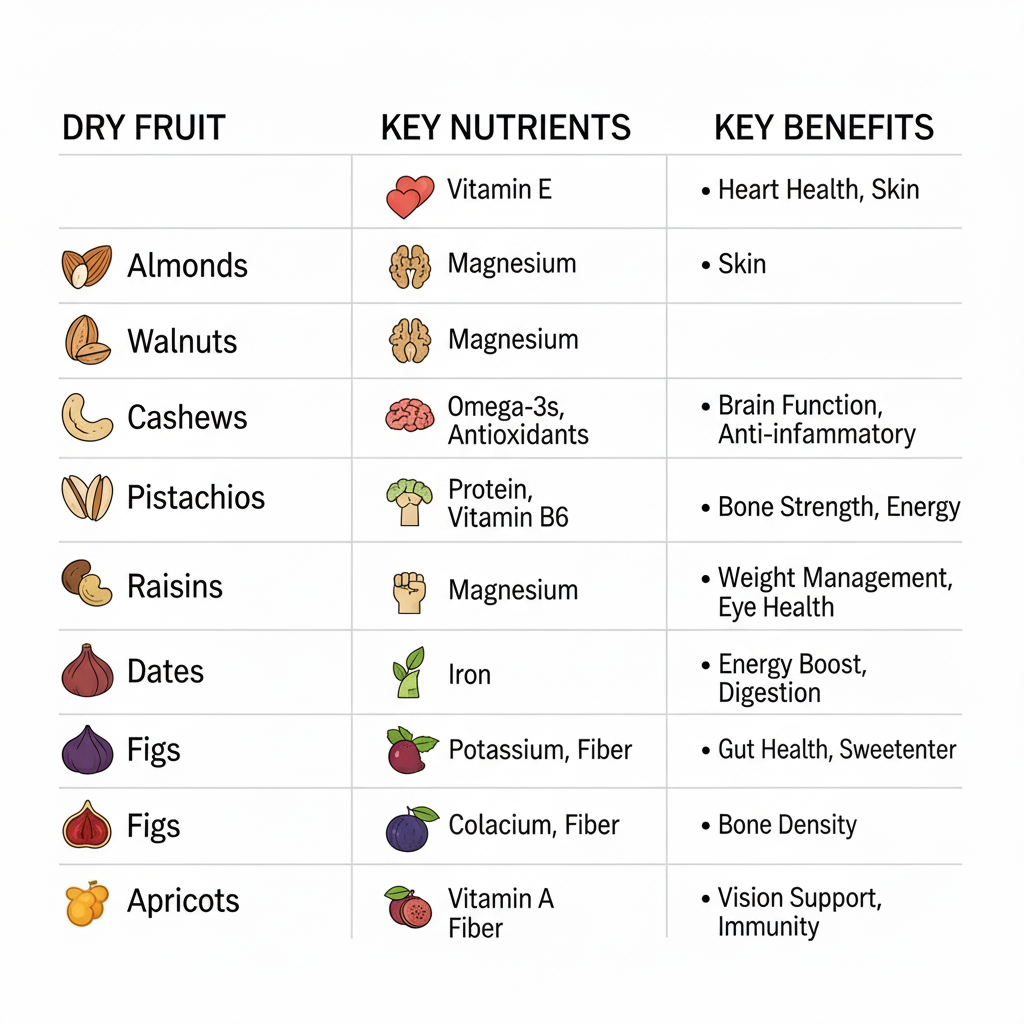Which Dry Fruit Is the Best? A Complete Guide to Benefits & Risks
Dry fruits have been a staple of human diets for generations. From royal feasts to everyday snacking, these nutrient-dense foods are valued for their flavor, portability, and health benefits. But with so many options—almonds, walnuts, cashews, pistachios, raisins, dates, and more—people often wonder: Which dry fruit is the best?
The truth is, there isn’t a single “best” dry fruit. Each type contains a distinct set of nutrients, advantages, and even possible hazards if ingested in excess.In this guide, we’ll explore the most popular dry fruits, their health benefits, nutritional values, and the precautions you should know before making them a daily habit.
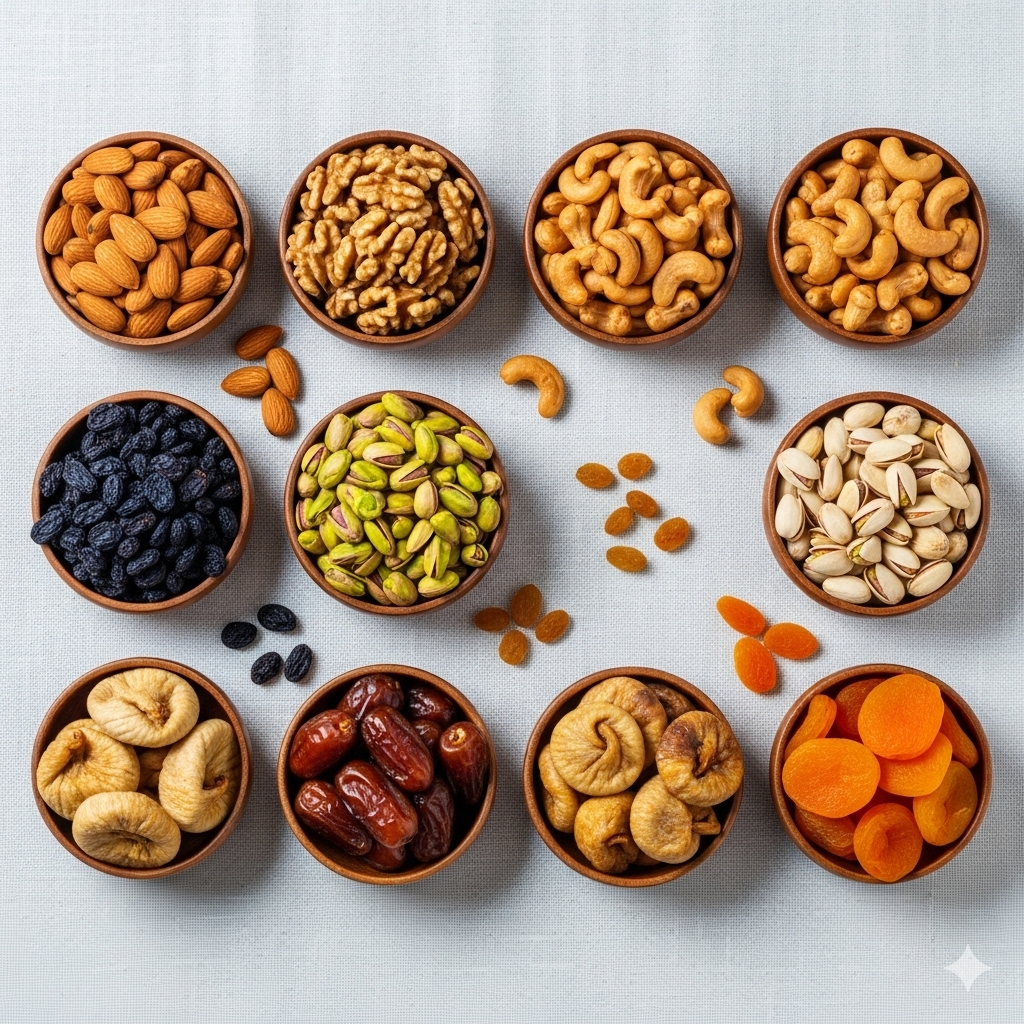
What Are Dry Fruits?
Dry fruits are fruits from which most of the water content has been removed naturally (like raisins and dates) or through drying methods (like figs and apricots). They are concentrated sources of energy, fiber, vitamins, and minerals. Nuts like almonds, walnuts, and cashews are also often grouped under dry fruits due to their similar nutritional profile and usage.
Popular Dry Fruits and Their Benefits
1. Almonds (Badam)
- Nutritional Highlights: High in vitamin E, magnesium, protein, and healthy fats.
- Benefits:
- Boosts memory and brain function.
- Improves skin health due to antioxidant content.
- Supports heart health by lowering LDL cholesterol.
- Risks: Excess consumption may lead to weight gain and digestive issues due to high calorie and fiber content.
2. Walnuts (Akhrot)
- Nutritional Highlights: Excellent source of omega-3 fatty acids, antioxidants, and plant protein.
- Benefits:
- Improves brain function and lowers the risk of neurodegenerative disorders.
- Supports heart health and lowers inflammation.
- Helps regulate sleep due to melatonin content.
- Risks: Can trigger allergies in sensitive individuals; high-calorie content may lead to weight gain if overconsumed.
Don’t know which one to pick? Try an assorted pack GreenFinity Dry Fruits Combo Pack
3. Cashews (Kaju)
- Nutritional Highlights: Rich in copper, magnesium, iron, and protein.
- Benefits:
- Good for bone health and blood circulation.
- Provides quick energy.
- Supports immune function with zinc content.
- Risks: High in calories and fats; salted cashews may increase sodium intake.
4. Pistachios (Pista)
- Nutritional Highlights: Contain protein, fiber, potassium, and antioxidants like lutein.
- Benefits:
- Great for eye health.
- Helps in weight management by promoting satiety.
- Supports heart health by lowering cholesterol.
- Risks: Salted or roasted versions may raise sodium levels; overconsumption can upset digestion.
5. Raisins (Kishmish)
- Nutritional Highlights: Rich in iron, potassium, calcium, and natural sugars.
- Benefits:
- Boosts hemoglobin and helps in treating anemia.
- Aids digestion and relieves constipation.
- Provides quick energy during workouts.
- Risks: High natural sugar content can raise blood sugar levels; may stick to teeth and cause cavities.
Try these premium almonds Nutty Organics California Almonds on Amazon for daily brain and skin health
6. Dates (Khajoor)
- Nutritional Highlights: Packed with natural sugars, potassium, and fiber.
- Benefits:
- Excellent natural sweetener alternative to refined sugar.
- Provides instant energy.
- Helps relieve constipation due to fiber content.
- Risks: High in calories and sugar; not ideal for diabetics in large quantities.
7. Figs (Anjeer)
- Nutritional Highlights: High in fiber, calcium, and antioxidants.
- Benefits:
- Supports bone health.
- Promotes healthy digestion.
- Helps regulate blood sugar levels.
- Risks: Can cause bloating and diarrhea if eaten in excess.
8. Apricots (Jardalu)
- Nutritional Highlights: Rich in vitamin A, potassium, and iron.
- Benefits:
- Improves vision.
- Prevents anemia.
- Boosts skin and hair health.
- Risks: Overeating may lead to digestive issues; sulfur-treated dried apricots may cause allergic reactions in sensitive people.
Comparing Dry Fruits: Which One is Best for You?
|
Dry Fruit |
Best For |
Key Nutrient |
Caution |
|
Almonds |
Brain & Skin Health |
Vitamin E |
May cause bloating if eaten in excess |
|
Walnuts |
Heart & Brain Health |
Omega-3 |
High in calories |
|
Cashews |
Bone Strength |
Magnesium |
Can raise cholesterol if salted |
|
Pistachios |
Weight Management & Eye Health |
Lutein |
Avoid salted versions |
|
Raisins |
Anemia & Digestion |
Iron |
High sugar content |
|
Dates |
Instant Energy |
Potassium |
Not ideal for diabetics |
|
Figs |
Digestion & Bones |
Fiber |
May cause bloating |
|
Apricots |
Eyes & Skin |
Vitamin A |
Sulfur sensitivity risk |
General Benefits of Eating Dry Fruits
- Provide an abundant supply of healthful fats and proteins.
- Improve energy levels and stamina.
- Strengthen bones, teeth, and immunity.
- Support heart health by reducing bad cholesterol.
- Boost memory and concentration.
- Aid in healthy skin and hair growth.
Risks of Overeating Dry Fruits
While dry fruits are healthy, moderation is key. Some potential risks include:
- Weight Gain: Dry fruits are calorie-dense and can contribute to obesity if overconsumed.
- Blood Sugar Spikes: Dates, raisins, and figs are high in natural sugars, which may not be suitable for diabetics in large quantities.
- Digestive Issues: Too much fiber from almonds, figs, and apricots can cause bloating, diarrhea, or constipation.
- Allergic Reactions: Nuts like almonds, walnuts, and cashews can trigger allergies in sensitive individuals.
- Excess Sodium: Salted or roasted varieties may increase the risk of high blood pressure.
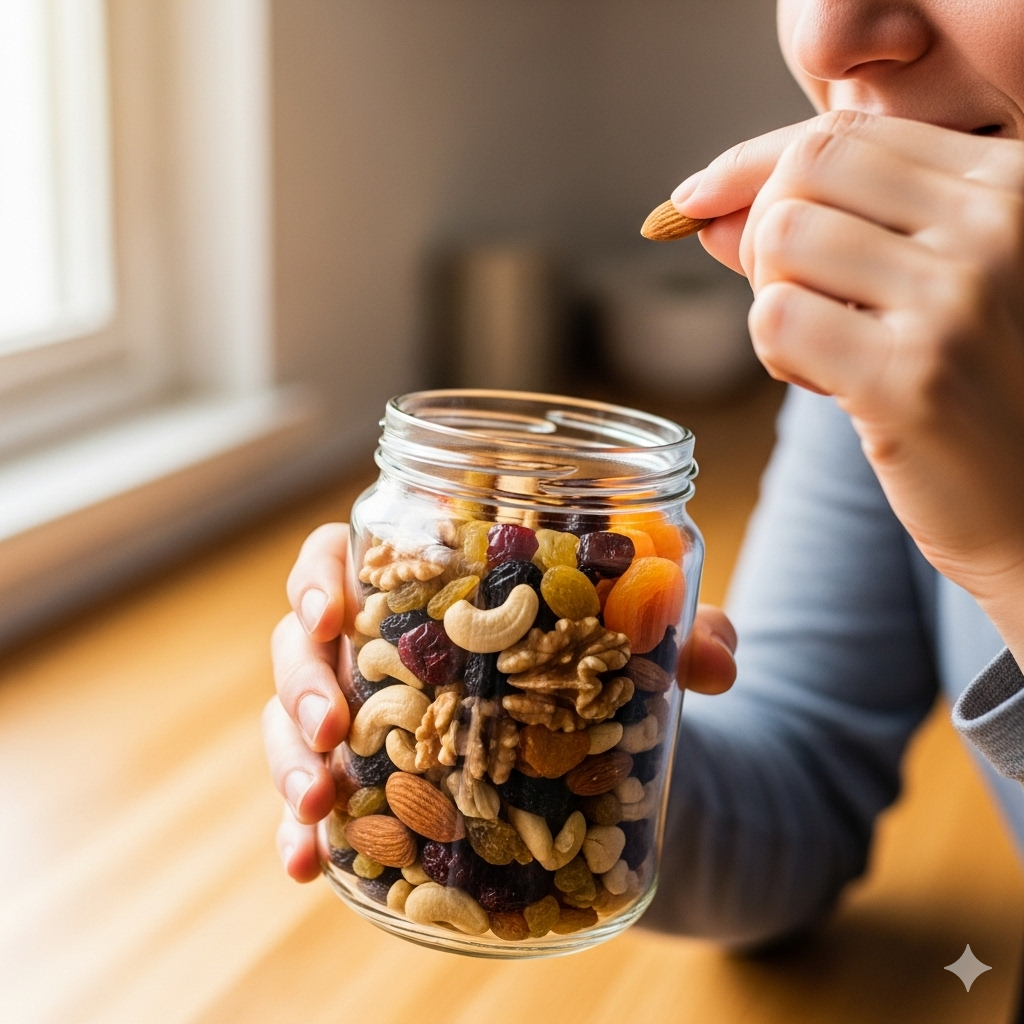
How Much Dry Fruit Should You Eat Daily?
Nutritionists generally recommend:
- 5–6 almonds
- 2–3 walnuts
- 5–7 cashews or pistachios
- 4–5 dates or figs
- A handful of raisins
This provides balanced nutrition without overloading on calories.
Please try this Vency Glass Cubical Square Transparent Jars for best results
Final Verdict: Which Dry Fruit Is the Best?
There is no single “winner.” The best dry fruit for you depends on your health goals:
- For brain power → Almonds & Walnuts.
- For weight management → Pistachios.
- For instant energy → Dates & Raisins.
- For better digestion → Figs & Apricots.
- For overall health → A balanced mix of all.
The healthiest approach is to enjoy a variety of dry fruits in moderation, combining their unique benefits while minimizing risks.

